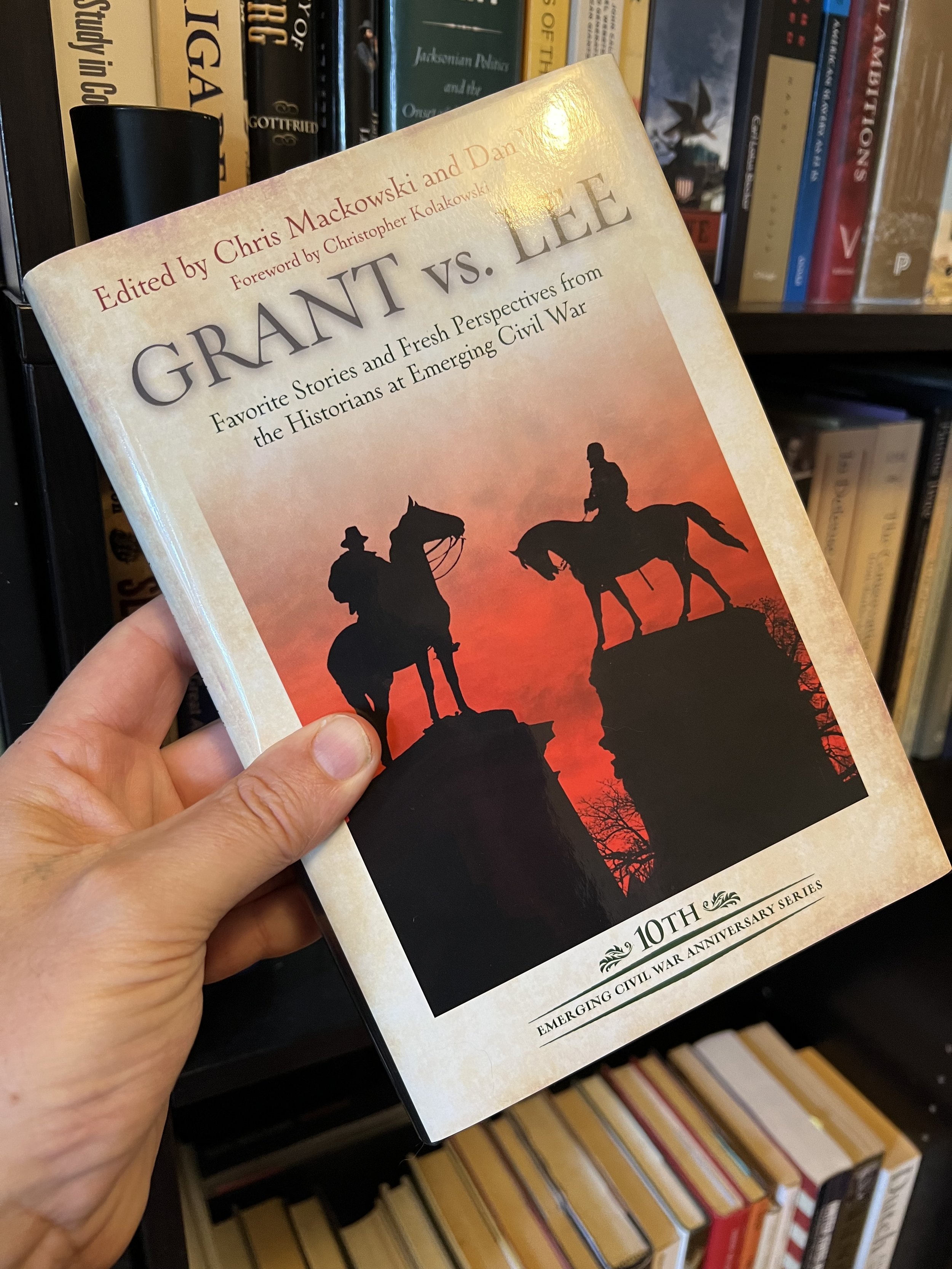Grant vs. Lee - New from the Emerging Civil War Series
Chris Mackowski and Dan Welch, eds., Grant vs. Lee: Favorite Stories and Fresh Perspectives from the Historians at Emerging Civil War (Savas Beatie, 2022).
In popular culture, it would be tough to argue that the 1864 Overland Campaign, the Siege of Petersburg, and the surrender of the Army of Northern Virginia at Appomattox in 1865 get the same attention as the big set-piece battles in the East, between 1861 and 1863, winding their way toward Gettysburg. Case in point - remember the sesquicentennial? There was a ton of national whoop-dee-do about the 150-year anniversary of the war until about 2013, whens peoples’ interest just sort of died out.
I find this odd. 1864 especially was a momentous year for both the Confederate and Union causes: the demise of the institution slavery, the election of 1864, the ebb and flow of civilian morale - so much hung in the balance, and the future was hardly certain, despite what some might say about the so-called “turning point” of the war having passed with the Union victory at Gettysburg...
And…it was no small turn of events that the two arguably greatest commanders that each side could muster would face off against one another for the first time in the summer of 1864: Robert E. Lee and Ulysses S. Grant. When these two went toe to toe the war (I think, anyway) went next level - an escalation in bloodletting that far eclipsed what had come before.
Since I have been spending a lot of time lately thinking about the last year of the war in the East - and especially about how I might discuss this period in the classroom, I am quite pleased about the latest volume from the folks who contribute to the Emerging Civil War series. This collection of essays from Savas Beatie, celebrating the series’s 10th anniversary and skillfully edited by Chris Mackowski and Dan Welch, absolutely belongs in anyone’s Civil War library. And I’ll tell you why:
There are tons of concise entries here, on a wide variety of topics, all covering the events from May 1864 to April 1865. I love that most of the entries are between 2-4 pages. I like to think of these pieces as Civil War snacks: easily accessible for the informed reader, great for discussion starters, and representative of diverse perspectives on the war. The various articles offer points that challenge conventional thinking about command and soldier morale, and they offer an excellent window into a fascinating period of the war that, at least in the public arena, people often overlook.
The authors are personable and witty (most of the entries are reprinted blog posts from the Emerging Civil War site), and I think they do a great service to those who have an interest in the last year of the war and are not sure where to start. The essays will point you in a number of directions for further secondary reading (especially Gordon Rhea’s volumes on the Overland Campaign) and give you a great sampling of first-hand accounts.
I really really really don’t want to give the whole thing away….but here are a few samplings of topics that will most certainly get the wheels turning:
The big-picture significance of the Eastern Theater…I know there are plenty out there who look West (and most recently, the far West) when they think about cause, consequence, and ultimate Union victory.
Soldier accounts, what we might think of as the “dark turn” in Civil War history, and the tragic fate of Emory Upton.
How to pronounce Totopotomoy (it’s not what you with think…).
Myths and perspectives on the fight at Cold Harbor (even Grant said he regretted giving the attack order in his memoirs).
Turning points and why we should think about them seriously.
Politics and the election of 1864.
Chipping away at Lee’s “marble man” image.
Like I said, there is something here to capture anyone’s attention. The one thing I wish the volume had included was a take on civilian morale, especially in the North during the Overland Campaign….as the bodies stacked up and the war dragged on and on and on with no clear end in sight. But hey, maybe that’s a great opener for the next volume. I am quite sure that any of the contributors could offer a compelling piece on the subject!
So for me, I found this collection absolutely riveting - it really fueled my interest for the 1864-65 campaigns in the East, and I highly recommend you grab a copy for yourself.
With compliments,
Keith

